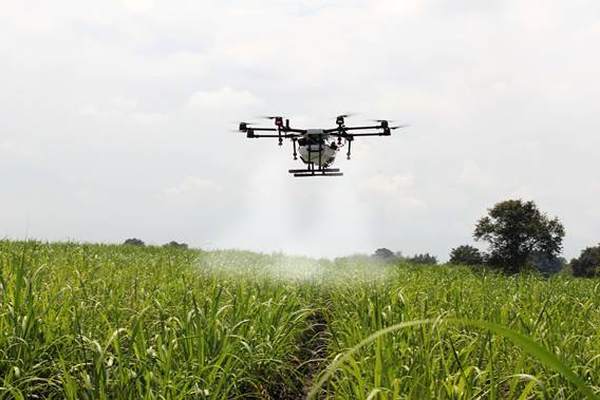Published on the 22/06/2018 | Written by Heather Wright

As long they can get some connectivity first…
New Zealand’s agricultural sector is looking to drones and robotics – along with increased connectivity – to help drive business in the coming decade.
The MYOB Rural Business Monitor highlights connectivity, automation/robotics and drones as the top three trends rural businesses believe will impact their industry in the coming decade. However, the report also shows that only 14 percent of those surveyed expect to increase investment in IT systems and processes in the coming year.
This year’s Techweek and Fieldays both highlighted the increasing role of technologies such as drones and automation in agriculture. Stock management and health checks, crop monitoring, surveying and mapping, and health and safety, along with transportation and application of items such as fertiliser and pesticides are just some of the tasks drones are expected to help with in the coming years.
“[Kiwi farmers are] significantly ahead of urban enterprises when it comes to adopting prototypes.”
Robotic milking with individual stock identification to gather data to help with informed planning, automated tractors, and fruit picking robots are also expected to play a hand in helping rural New Zealand business increase productivity or gain additional benefits from the wealth of information gathered.
The MYOB survey saw improvement in connectivity deemed to be both the technology trend which has already had the greatest impact on the industry (30 percent), and also the technology which will have the most impact in the coming decade (24 percent).
Internet of things was second ranked, at 18 percent, for having already had the greatest impact while cloud computing was the technology rated third in already having an impact on the industry – garnering 15 percent of the vote – but didn’t feature in the top three for most impact for the coming decade.
Instead, drones (20 percent) and automation and robotics (18 percent) were seen as having the most impact.
That contrasts with city-based ‘mid-market’ business owners for whom connectivity, cloud-computing and internet of things rated as the technologies most likely to impact their industry in the coming decade.
“This shows us that Kiwi farmers are well placed for the future and are ready for continued disruption from new technologies,” MYOB New Zealand general manager Carolyn Luey said. “They’re also significantly ahead of urban enterprises when it comes to adopting prototypes, systems and devices that cut costs, increase efficiencies and shorten distances between markets.”
Luey noted that while data might not make the grass grow, it is important for running an agri-business. “It’s no surprise that connectivity came out on top as the most important tech trend.”
She highlighted the use of tablets for sharing information, robots cleaning silos and drones counting livestock or measuring humidity levels in real time as examples of the use of technology on New Zealand farms.
Noticeably, artificial intelligence didn’t feature in the top three. Earlier this year a Callaghan Innovation white paper flagged AI as having ‘an extreme impact’ on agriculture over the next decade.
Callaghan Innovation chief executive Vic Crone said many business leaders were yet to embrace the opportunities of AI and risked falling behind. “Artificial intelligence is not just a technology for tech companies in New Zealand and around the world, businesses across diverse industries are using it in a host of ways to create serious competitive advantages,” Crone said.
She noted the use of AI to drive automated harvesting and milking, smart monitoring of plants and stock health as well as more precise forecasting of crop and dairy yields.
The Startup Genome Report 2018 flagged New Zealand as one of four locations to watch for agritech solutions. Silicon Valley, Boston and Amsterdam also made the list.
Callaghan Innovation said it has engaged with 25 percent more agritech clients in the past year with 10 percent of the $86 million invested in early stage businesses (presumably through the soon to be defunct growth grant scheme) directed at agritech. However, Callaghan said NZ Inc ‘must continue to find a way to cultivate a continuous agritech startup pipeline and encourage agricultural businesses to invest in R&D.



























